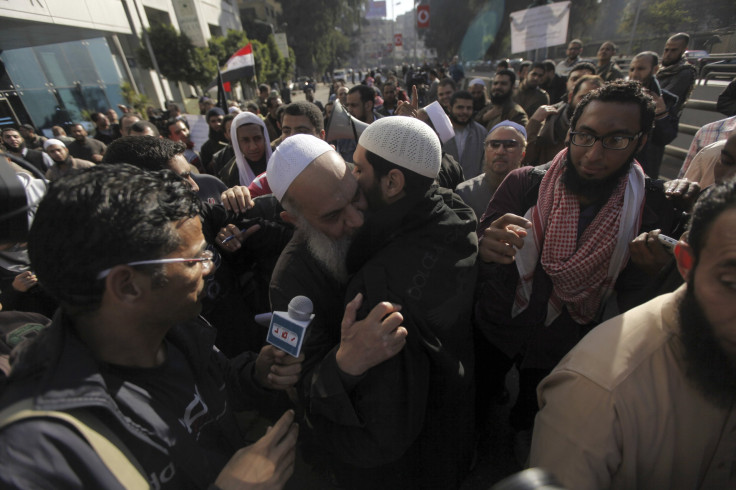Egypt War On Terror: Al Qaeda Leader Zawahiri's Brother Acquitted Of Terrorism-Related Charges, Amid Growing Security Threats

Mohamed Rabie al-Zawahiri, the brother of the leader of Al Qaeda, Ayman al Zawahiri, has reportedly been acquitted of charges of forming a Qaeda-linked terrorist cell in Egypt. The South Cairo Court that acquitted Zawahiri sentenced 10 other defendants to death and 20 others to life in prison, the Cairo Post reported Thursday.
Zawahiri was arrested in 2013, and faced charges of organizing terrorist attacks and forming a terrorist cell, after the Egyptian army ousted Egypt's democratically elected president Mohammed Morsi, who was a leader of the Muslim Brotherhood. Zawahiri's lawyer said in June that physical evidence linking Zawahiri to the crime -- weapons, explosives, maps and information on public figures -- had been tampered with. Prosecutors said, however, that the evidence had been forensically examined and determined authentic.
The trial began in July and included 68 suspects, Egypt Independent reported. They were accused of trying to create an organization within Egypt that was linked to Al Qaeda, which is led by Mohamed al-Zawahiri's brother Ayman, that sought to "disrupt constitution and state institutions, spying for Al-Qaeda organization, planning to target security installations and inciting to kill army and police forces," in the prosecution's words.
Egyptian court sentences 10 defendants to death in 'Zawahiri cell' case http://t.co/yAZia58tqd pic.twitter.com/jL3IoqbkCI
— Ahram Online (@ahramonline) October 15, 2015
The U.S. Department of State has a $25 million reward for information on Ayman al-Zawahiri, an eye surgeon who founded the group Egyptian Islamic Jihad, which merged with Al Qaeda around 1998. He became the leader of Al Qaeda in 2011, a few weeks after the death of Osama Bin Laden. Ayman Zawahiri's whereabouts remain unknown, and he has not been heard from since September 2014, when he announced the creation of a new branch of Al Qaeda in India.
Egypt, under President Abdel Fatah El-Sisi, has been grappling with security concerns over the past year, particularly in the Sinai Peninsula, where Sinai Province, a group that pledged allegiance to the Islamic State militant group, has carried out deadly attacks on Egyptian military facilities in the peninsula and claimed responsibility for other attacks, including on civilians, elsewhere in Egypt.
© Copyright IBTimes 2024. All rights reserved.






















